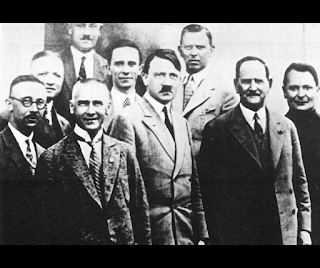Introduction:
The study of history is an invaluable tool for
understanding the past, unraveling the complexities of the present, and shaping
the course of the future. History provides us with a lens through which we
interpret events, societies, and civilizations. However, it is important to
recognize that history itself is not a fixed entity but rather a narrative
constructed by those who write it. In this blog, we will explore the profound
influence of historians and their interpretations in shaping our understanding
of the past, and the implications this has for our perception of history.
The Role of Historians:
Historians play a pivotal role in recording, analyzing, and
interpreting historical events. They sift through primary and secondary
sources, gather evidence, and construct narratives that aim to capture the
essence of a particular era or event. Their perspectives, biases, and choices
of what to include or omit can profoundly influence the way history is
portrayed.
Subjectivity and Bias:
History, as a discipline, is not immune to subjectivity and
bias. Historians are influenced by their own cultural, social, and personal
contexts, which inevitably shape their interpretation of events. Every
historian brings their own perspective, experiences, and values to the table,
which can lead to variations in how history is written and understood.
Power and Agency:
The writing of history is often intertwined with power
dynamics. Historically, the dominant groups or ruling powers have had a
significant influence over how history is portrayed. They possess the agency to
shape the narrative to serve their own interests, often marginalizing or
erasing the perspectives and experiences of marginalized communities or
dissenting voices.
Uncovering Hidden Narratives:
However, history is not a monolithic entity. It is a
dynamic field that evolves as new evidence emerges and different voices are
included. Over time, marginalized communities and previously overlooked
perspectives have challenged dominant narratives, shedding light on untold
stories and providing a more comprehensive understanding of the past.
Revisiting History:
As our understanding of the world evolves, it is crucial to
critically examine and question the historical accounts presented to us. The
reevaluation of historical events and figures allows for a more nuanced
understanding of the complexities and contradictions inherent in human history.
By recognizing the agency of historians, we can engage in a continuous process
of reassessment and reexamination.
The Importance of Multiple Perspectives:
To achieve a more accurate and inclusive understanding of
history, it is essential to incorporate multiple perspectives. By incorporating
diverse voices and narratives, we can challenge the biases and limitations of
traditional historical accounts. This promotes a more comprehensive and
empathetic understanding of the past, fostering a society that values
inclusivity and cultural diversity.
Conclusion:
History is not a static, objective record of events; it is
a living narrative shaped by the historians who write it. Their perspectives,
biases, and choices profoundly influence the stories that are told and the
voices that are heard. Recognizing the subjectivity inherent in the writing of
history allows us to question and critically evaluate the narratives presented
to us. By embracing multiple perspectives and continuously revisiting history,
we can strive for a more comprehensive, inclusive, and accurate understanding
of the past. Ultimately, the power to shape history lies not only in the hands
of historians but also in our collective responsibility to seek the truth and
honor the multiplicity of human experiences.





.png)
.png)
.png)

.png)

0 Comments
Let me know below, What do you think about it?